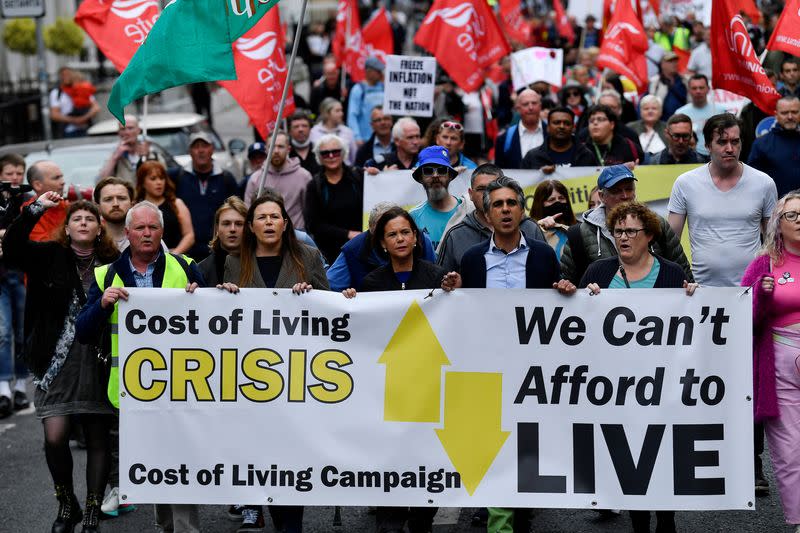Ireland hands households, businesses more cost-of-living relief

DUBLIN (Reuters) -Ireland on Tuesday announced 1.3 billion euros ($1.4 billion) in further cost-of-living relief payments to households and extended a temporary lower VAT rate for the hospitality sector through the summer season.
The package was more modest than the 4 billion euros introduced last September as inflation took off, and the government also outlined on Tuesday how it would unwind some supports, including cuts to excise duty on petrol and diesel.
The latest round includes one-off payments for pensioners, parents and social-welfare recipients. The 9% VAT rate for the hospitality sector - reintroduced during the COVID-19 pandemic - will now not return to 13.5% until the end of August.
Prime Minister Leo Varadkar said the measures would broadly be funded within the parameters of the budget already announced for 2023, leaving more "financial firepower" to act again later this year if needed thanks to the 5 billion euro, or 2% of gross national income, budget surplus recorded last year.
This year's budget included contingency funds that have not yet been tapped, while a 1.25 billion euro business energy support scheme has also so far been largely unspent, although the government expanded the scheme on Tuesday in a bid to help more businesses with higher energy bills.
Energy Minister Eamon Ryan told national broadcaster RTE that windfall taxes on energy companies due to be introduced this year would raise between 300 and 600 million euros, depending on the price of gas.
($1 = 0.9383 euros)
(Reporting by Padraic Halpin and Conor HumphriesEditing by Mark Potter and Mark Heinrich)

 Yahoo Finance
Yahoo Finance 